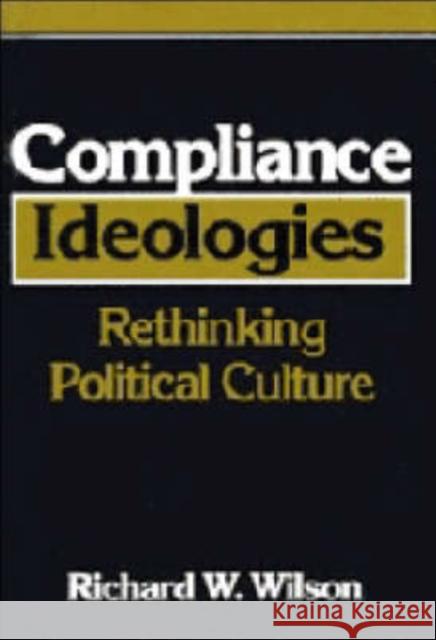Compliance Ideologies: Rethinking Political Culture » książka
Compliance Ideologies: Rethinking Political Culture
ISBN-13: 9780521415811 / Angielski / Twarda / 1992 / 236 str.
Compliance Ideologies: Rethinking Political Culture
ISBN-13: 9780521415811 / Angielski / Twarda / 1992 / 236 str.
(netto: 403,71 VAT: 5%)
Najniższa cena z 30 dni: 382,84
ok. 16-18 dni roboczych.
Darmowa dostawa!
Drawing on a broad range of literature in the social sciences, this book deals with one of the most elusive subjects in the study of politics and society: the role of culture. Wilson first develops a definition of political culture and a theoretical argument about how political cultures are formed and how they evolve. He emphasizes the roles of social knowledge and technological development as engines of cultural change and the dialectic between individual reasoning and social norms in the shaping of political values. Stressing the need to understand the interaction of individual and societal factors, he develops the concept of compliance ideologies, which he argues are the mechanisms through which a dominant culture is established and maintained. Wilson then applies this conception of compliance ideologies to the study of how political cultures in various societies have changed in the shift from agrarian, family-centered social organizations to industrialized societies characterized by complex social institutions. The differences between the political cultures of capitalist and communist systems are also examined, and in the conclusion likely developments in various contemporary political cultures are sketched.











